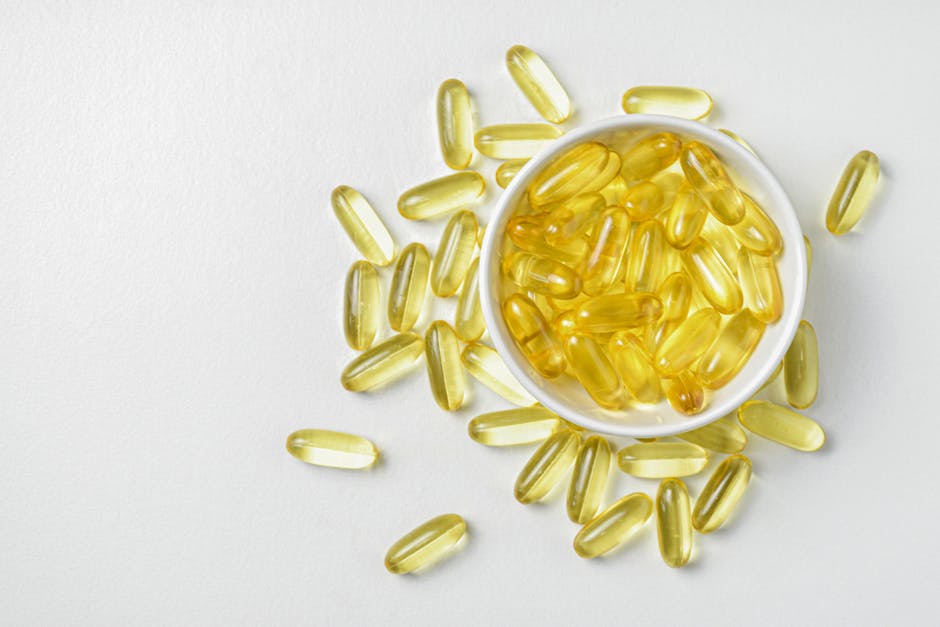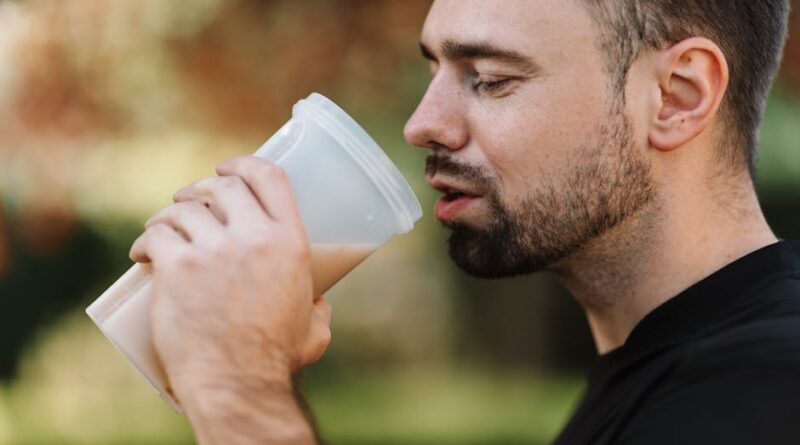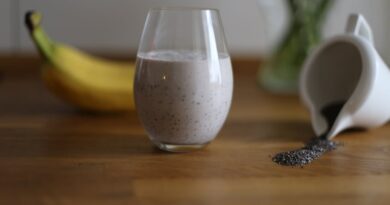The Role of Vitamin D in Muscle Health
When we think about the importance of vitamins in our diet, we often focus on their role in maintaining overall health and well-being. However, one key nutrient that plays a significant role in muscle health is often overlooked – vitamin D. This essential vitamin not only helps in the absorption of calcium for bone health but also has a profound impact on muscle function and strength. In this comprehensive guide, we will delve into the fascinating world of vitamin D and its crucial role in maintaining healthy muscles.
Understanding Vitamin D: The Sunshine Vitamin
Vitamin D is often referred to as the “sunshine vitamin” because our bodies can produce it when exposed to sunlight. This fat-soluble vitamin exists in two forms: vitamin D2 (ergocalciferol) and vitamin D3 (cholecalciferol). While vitamin D2 is derived from plant sources, vitamin D3 is synthesized in the skin when exposed to ultraviolet B (UVB) rays from sunlight. Additionally, both forms can also be obtained through dietary sources such as fatty fish, fortified foods, and supplements.

By Nataliya Vaitkevich via Pexels
Research has shown that vitamin D plays a crucial role in various bodily functions, including bone health, immune function, and muscle strength. However, its impact on muscle health is often underestimated. Let’s explore the specific ways in which vitamin D influences muscle function and why maintaining optimal levels of this vitamin is essential for overall muscle health.
The Relationship Between Vitamin D and Muscle Function
One of the primary roles of vitamin D in muscle health is its involvement in muscle protein synthesis. Protein synthesis is essential for muscle growth, repair, and maintenance. Vitamin D helps regulate the expression of genes involved in muscle protein synthesis, thereby promoting muscle growth and repair.
In addition to protein synthesis, vitamin D also plays a crucial role in muscle contraction. Muscle contraction is the process by which muscles generate force and movement. Vitamin D helps regulate calcium levels in muscle cells, which is essential for proper muscle function. Adequate vitamin D levels ensure that muscles can contract efficiently, leading to improved muscle performance and strength.
Furthermore, vitamin D deficiency has been linked to muscle weakness, fatigue, and an increased risk of falls and fractures, especially in older adults. Research has shown that maintaining optimal vitamin D levels can help prevent muscle weakness and improve muscle function, thereby reducing the risk of falls and fractures in the elderly.

By Pavel Danilyuk via Pexels
The Impact of Vitamin D Deficiency on Muscle Health
Vitamin D deficiency is a common problem worldwide, affecting people of all ages and ethnicities. Several factors can contribute to vitamin D deficiency, including limited sun exposure, dark skin pigmentation, aging, obesity, and certain medical conditions. When it comes to muscle health, vitamin D deficiency can have a significant impact on muscle function and strength.
Studies have shown that individuals with low vitamin D levels are more likely to experience muscle weakness, muscle pain, and decreased muscle performance. In severe cases, vitamin D deficiency can lead to conditions such as osteomalacia (softening of the bones) and muscle myopathy (muscle disease). These conditions can significantly impair an individual’s quality of life and mobility.
Furthermore, vitamin D deficiency has been associated with an increased risk of sarcopenia, a condition characterized by the loss of muscle mass and strength with aging. Sarcopenia can lead to functional decline, increased risk of falls, and loss of independence in older adults. By maintaining adequate vitamin D levels, individuals can reduce the risk of sarcopenia and preserve muscle health as they age.
The Role of Vitamin D Supplementation in Muscle Health
Given the widespread prevalence of vitamin D deficiency and its impact on muscle health, many healthcare professionals recommend vitamin D supplementation to maintain optimal vitamin D levels. Vitamin D supplements are available in various forms, including tablets, capsules, and liquid drops.
It is essential to consult with a healthcare provider before starting any vitamin D supplementation regimen, as individual vitamin D requirements may vary based on factors such as age, sun exposure, dietary intake, and medical history. Healthcare providers can conduct blood tests to determine an individual’s vitamin D status and recommend the appropriate dosage of vitamin D supplements to achieve and maintain optimal levels.
Research has shown that vitamin D supplementation can help improve muscle strength, reduce the risk of falls, and enhance overall muscle function, particularly in individuals with vitamin D deficiency. However, it is crucial to note that vitamin D supplementation should be used in conjunction with a balanced diet, regular exercise, and sun exposure to maximize its benefits on muscle health.

By Ketut Subiyanto via Pexels
Expert Opinions on Vitamin D and Muscle Health
Experts in the field of nutrition and sports medicine emphasize the importance of vitamin D in maintaining healthy muscles. Dr. Michael Holick, a leading vitamin D researcher, states, “Vitamin D is not only essential for bone health but also plays a crucial role in muscle function and strength. Ensuring adequate vitamin D levels is vital for overall musculoskeletal health.”
Dr. Holick also highlights the significance of vitamin D supplementation in individuals with vitamin D deficiency, stating, “For individuals with low vitamin D levels, supplementation can help improve muscle strength, reduce the risk of falls, and enhance physical performance. It is essential to address vitamin D deficiency to optimize muscle health.”
Common Misconceptions About Vitamin D and Muscle Health

By Aknarin Thika via Pexels
Despite the growing awareness of the importance of vitamin D in muscle health, several misconceptions persist. One common misconception is that sun exposure alone is sufficient to meet vitamin D requirements. While sun exposure is a significant source of vitamin D, factors such as sunscreen use, time of day, season, and geographic location can affect vitamin D production in the skin.
Another common misconception is that vitamin D supplementation is only necessary for certain populations, such as older adults or individuals with limited sun exposure. However, vitamin D deficiency can affect people of all ages and backgrounds, making supplementation a valuable tool in maintaining optimal vitamin D levels for muscle health.
Conclusion: Emphasizing the Vital Role of Vitamin D in Muscle Health
In conclusion, vitamin D plays a crucial role in maintaining healthy muscles and overall musculoskeletal health. From regulating muscle protein synthesis to enhancing muscle contraction and strength, vitamin D influences various aspects of muscle function. Ensuring optimal vitamin D levels through a combination of sun exposure, dietary sources, and supplementation can help prevent muscle weakness, improve muscle performance, and reduce the risk of falls and fractures.
As we continue to unravel the intricate relationship between vitamin D and muscle health, it is essential to prioritize this vital nutrient in our daily lives. By understanding the significance of vitamin D in muscle function and taking proactive steps to maintain adequate levels, we can optimize our muscle health and overall well-being. Let’s embrace the power of vitamin D and pave the way for stronger, healthier muscles for years to come.




